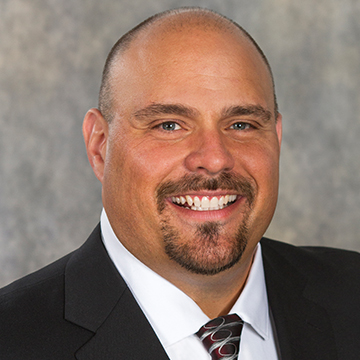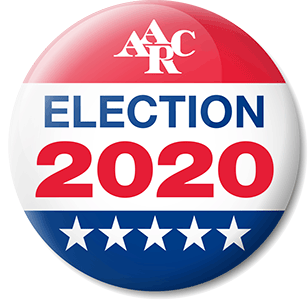Education Section Chair
Aaron Light, DHSc, RRT, RRT-ACCS
Program Director
Ozarks Technical Community College
Part-Time Lecturer
Northeastern University
Member Since: 2003
AARC Activities:
- AARC Education Section Subcommittee on Membership 2015
HOD Activities:
- Missouri Delegate 2017–present
- Chair of Strategic Objective 3 in HOD
- Member of Ad Hoc Committee on Student Mentorship
Affiliate Activities:
- MSRC Delegate 2017–present
- MSRC Vice President 2012–2014
- MSRC Fall symposium adult critical care chair 2010–2014
Related Organizations:
- AHA ACLS instructor 2010–2015
- Member of the Missouri Community College Association
- GO CAPS Medicine and Health Care Advisory Committee Member
Education:
- DHSc — Doctorate of Health Science from Nova Southeastern, 2012
- MS — Master of Science in Respiratory Care Leadership from Northeastern University, 2009
- AAS — Associates of Applied Science in Respiratory Therapy from Ozarks Technical Community College, 2001
Elections Committee Questions:
What experience or significant contributions do you have to offer the AARC which would help accomplish one or more of the AARC Horizon Goals as presented by President Schell?
Willingness to interact with any party on the value of the Respiratory Therapist. I am an active member of the Education Section, Adult Critical Care Section and Facebook groups where I promote the value of Respiratory Therapist and the AARC. While those currently within the AARC know its value, many on the outside are not aware. Within these groups, I actively interact with other healthcare practitioners to demonstrate the value of higher education, advanced credentials, and other forms of education. Additionally, I promote the use of evidence-based practice and the need for the Respiratory Therapist to utilize this practice to provide the best patient outcomes. Within the MSRC I am an active board member that discusses credentialing and higher education with the BOD and legislative bodies in Missouri. I have created surveys for therapists to assess their opinions of higher credential and degree requirements within our state and presented the material to the BOD of the MSRC.
What ideas would you present to increase AARC membership?
We need to reach out to individuals outside of the AARC and find out why those individuals are not members and/or do not see value in what the AARC offers. I believe that we truly need to find out some of the barriers, reasons, and rationales against membership before we can devise a plan to increase membership. This reach out plan could be through social media sites, survey instruments sent to managers and educators in their respective sections and then forwarded to staff. The most important thing is to collect data on why people are not members, then we can create a plan to increase AARC membership.
Role-Specific Questions:
What do you feel are the top two or three opportunities facing your section that you believe should be addressed during your term?
1) Assess the section to find out what their needs are. Meaning, what common problems/needs do section members have that might be able to be addressed with educational opportunities via conference presentations, write-ups in the newsletter, articles in the educational annual, connect discussion threads, or addressed with the Board of Directors of the AARC. I believe the section should be actively searching out the needs of the members and addressing as many of them as possible in whatever format best fits the need.
2) Why are hospital and school-based educators not members of the section or the AARC? Back in 2015 a series of phone calls to educators in my state provided me a lot in insight into these questions and provided me the opportunity to promote the section and gain members. I feel that a campaign like this should be performed in all states.







